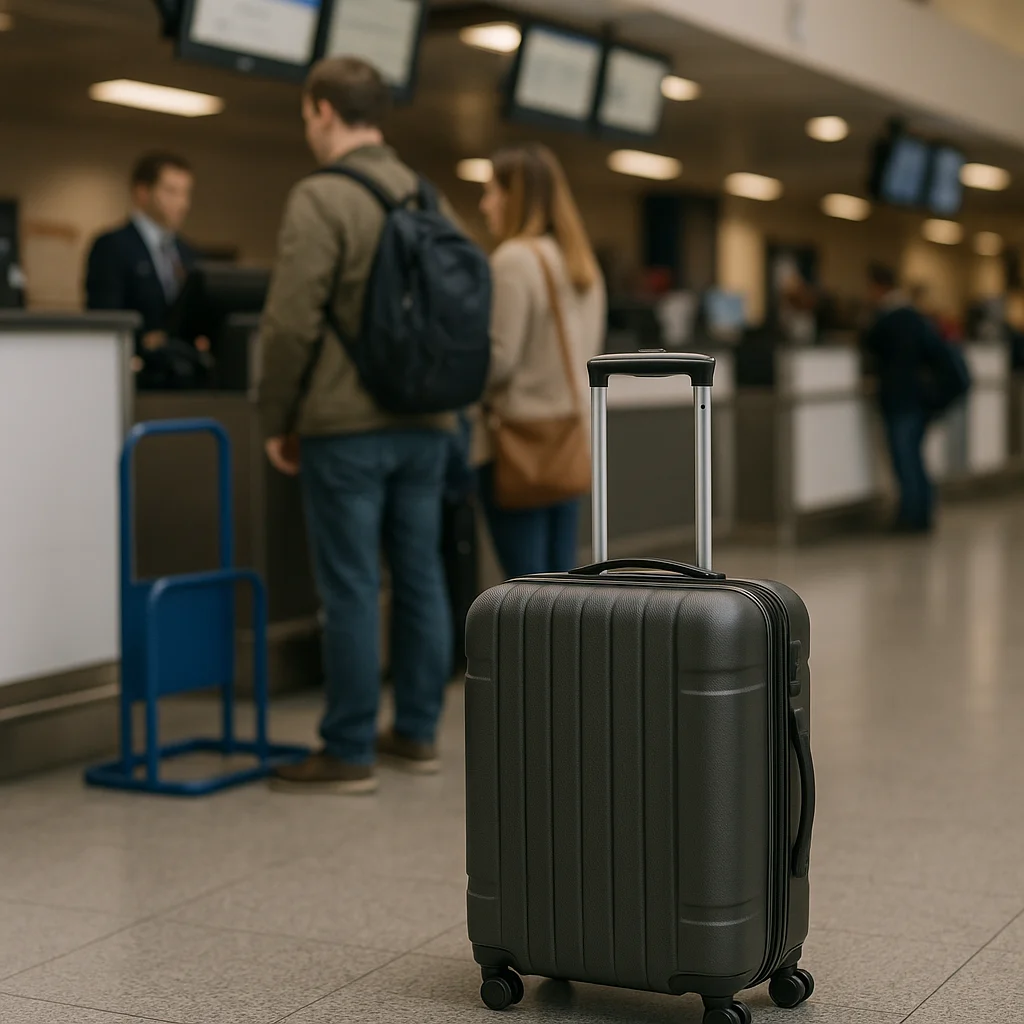Stay Calm and Act Fast When You Discover Lost Luggage
Landing at your destination only to find your luggage has vanished can feel overwhelming and frustrating. The good news is that lost luggage is a common issue airlines handle daily, and there are clear steps you can take immediately to boost your chances of recovery. Remaining calm and proactive is critical in these situations to ensure your belongings are tracked down quickly. This guide explains what to do right now if your lost luggage hasn’t arrived with you.
Locate and Report Your Lost Luggage at the Airport
The moment you suspect your luggage is missing, head straight to your airline’s baggage service or lost luggage desk. Every airport has dedicated counters designed to assist passengers with baggage problems.
Provide Clear Details for Faster Identification
To help the agents locate your luggage, be ready to give:
– A copy of your boarding pass and baggage claim tags
– A detailed description of your luggage, including color, brand, size, and any distinctive markings
– Information about your flight numbers and connections, if applicable
Be precise as possible; even small details like sticker tags or unique straps can make a difference.
File a Lost Luggage Report Immediately
Filing a formal lost luggage report with the airline staff ensures you’re officially in the system. This report generally includes:
– Your contact information
– Flight and ticket details
– Description of the missing suitcase
– Preferred method of communication for updates
Ask for a reference number for your report. Having this number is crucial for follow-ups and claims.
Understand Airlines’ Lost Luggage Policies and Compensation
Each airline has policies governing responsibility and compensation concerning lost luggage. Familiarizing yourself with these can clarify your rights and expectations.
Know the Timeframe for Baggage Recovery
Most lost luggage cases are resolved within 24 to 48 hours. Airlines conduct systematic tracking using barcode scanners and their baggage handling networks. However, if your luggage is not found within this window, you may need to explore compensation options.
Compensation and Reimbursement Rules
Airlines typically provide limited compensation for lost luggage, subject to international agreements like the Montreal Convention. Key points include:
– Airlines’ liability caps for lost baggage, often tied to international regulations
– Reimbursement for essential items you purchase due to lost luggage, subject to receipts and claim approvals
– Time limits for submitting claims after your flight
Always keep receipts of clothing and toiletries bought out of necessity as proof for claims.
Track Your Lost Luggage Using Technology
Modern tools can complement traditional reporting methods to locate your lost luggage faster.
Leverage Airline Tracking Systems
Most airlines have online baggage tracking portals where you can enter your baggage claim number and get real-time updates about your suitcase’s location. Checking this regularly keeps you informed without extra calls.
Use Smart Luggage Tags and Tracking Devices
If you travel frequently, consider investing in smart luggage tags or Bluetooth trackers. These devices sync with your smartphone to help identify your bag’s position and notify you if lost.
Practical Tips to Minimize Impact While Waiting
Waiting for your lost luggage can disrupt your plans considerably, but there are smart steps to get through this interim period with minimal inconvenience.
Pack an Emergency Kit in Your Carry-On
Next time you travel, include a compact emergency kit including:
– Change of clothes and essential toiletries
– Important medications
– Chargers and travel documents
– Contact information for your airline and hotel
Having these on hand can reduce stress if your checked luggage doesn’t arrive promptly.
Stay in Touch and Follow Up Regularly
Persistence can pay off. Contact your airline’s baggage office if you don’t receive updates within 24 hours. Be polite but firm, and keep notes of all conversations with dates, names, and details.
When All Else Fails: Filing a Claim or Getting Legal Help
If your luggage remains missing for several days, you may need to escalate your case to receive appropriate compensation.
How to File a Formal Claim
Gather all documentation: your lost luggage report, boarding passes, receipts for necessary purchases, and any correspondence with the airline. Submit a claim following the airline’s instructions, often via their website or customer service email.
Consider Consumer Protection Resources
If you’re not satisfied with the airline’s response, you can contact aviation authorities or consumer rights organizations for assistance. Many countries have dedicated agencies for airline customer complaints.
Prevent Lost Luggage Before Your Next Trip
The best way to deal with lost luggage is to avoid losing it in the first place. While nothing guarantees your baggage will arrive perfectly, these tips can improve your chances.
– Label your luggage visibly inside and out with your name and contact details
– Choose carry-on luggage when possible to keep essentials with you
– Use distinctive luggage covers or ribbons to make your suitcase easier to spot
– Arrive early to avoid rushed check-ins where errors are more likely
Taking a few preventive steps will give you peace of mind and reduce the impact of potential lost luggage.
Packed with practical advice and clear instructions, this guide arms you with the knowledge to handle lost luggage confidently and effectively. Whether you’re at the airport or following up after your trip, knowing exactly what to do can make all the difference.
For personalized assistance or updates on airline and airport policies regarding lost luggage, visit khmuhtadin.com and get expert support to resolve your travel issues quickly. Don’t let lost luggage ruin your journey—act swiftly and stay informed.




